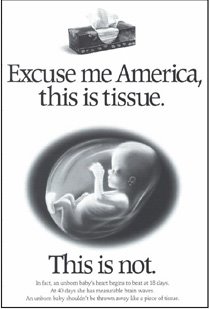Church Father Basil of Caesarea on Abortion
 The
The exists to call the twenty-first century church to a reformation that recovers clarity and conviction about the great evangelical truths of the gospel and that then seeks to proclaim these truths powerfully in our contemporary context.
So says their mission statement.
Reformation21, the online magazine of the Alliance of Confessing Evangelicals, has recently introduced a new feature entitled Why Study the Fathers? with the catch headline:
Our forebears at the time of the Reformation knew well the benefit of studying the patristic era. What did they know that we have forgotten?Author Michael A G Haykin, in his introduction to the feature, notes a major reason for studying and mastering the early Church fathers:
First, study of the Fathers, like any historical study, liberates us from the present.
Amen! How desperately we Christians need such objectivity in our day!
The first test case presented in this study, interestingly, is Church Father Basil of
This is a fascinating look into the mind of one of the earliest and greatest Christians on the practice of abortion, something not at all uncommon in the Graeco-Roman world.
The article starts off very early like this:
The New Testament nowhere explicitly condemns the practice of abortion, which is somewhat surprising in view of the fact that abortion was not at all uncommon in the Graeco-Roman world. Whatever the reason for this explicit silence, early Christian authors outside of the New Testament consistently saw, in the frequent recourse to abortion by women in the Graeco-Roman world, a violation of the Scriptural prohibition against murder.
For instance, the second-century apologist, Athenagoras, answering the pagan accusation the Christians practiced cannibalism, (a charge that was rooted in a misunderstanding of the Lord’s Supper), could declare:
What sense does it make to think of us as murderers when we say that women who practice abortion are murderers and will render account to God for abortion? The same man cannot regard that which is in the womb as a living being and for that reason an object of God’s concern and then murder it when it has come into the light.
Then Haykin presents a sketch of the life of Basil of Caesarea, noting that
Basil is probably best known for the key role that he played in the articulation of the orthodox doctrine of the Trinity.But apparently Basil had a keen interest in ethical questions also and
his statement on the issue of abortion has been well described by Michael J. Gorman as ‘one of the most profound theological and ethical statements on abortion’ that has come down to us from the early Church.
Haykin moves on then to Basil’s actual remarks on abortion which appeared in a letter written to a close friend and co-worker, Amphilochius of Iconium in either AD 374 or 375. Basil’s thoughts are summarized in this way: Basil begins by reiterating the position of Athenagoras: abortion is murder. In fact, Basil notes, it often results in two murders, since the woman seeking to have an abortion often dies in the endeavour. Moreover, he rejects any arbitrary attempt to distinguish between stages of fetal development. Basil clearly believes that a human soul is present in a developing fetus from the moment of conception, and he is thus concerned that the deliberate killing of any unborn be regarded as murder. As Gorman puts it, Basil “dismisses as irrelevant all casuistic distinctions between the formed and unformed fetus. For him…all life…is sacred.”
We’ve heard so much in the last forty years of legalized abortion from those desperately seeking to justify a “woman’s right to choose.” Unfortunately many Christian leaders, including pastors, bishops and theologians have been pioneers in this fraudulent and insidious enterprise. We have heard such arguments as The Bible is silent on abortion; There was great disagreement among the early Fathers on the subject of abortion; and the Bible can’t answer the scientific questions surrounding the nature of the fetus, etc.
It’s refreshing to hear Basil of Alexander’s succinct analysis: a human soul is present in a developing fetus from the moment of conception, and thus the deliberate killing of any unborn may be regarded as murder.
But Haykin deals also in his article with Basil’s treatment of the controversial passage of Exodus 21:22-24 which has been used to great advantage by pro-abortion cheerleaders of our time. Apparently there were some in Basil’s day who used this passage as well to argue that abortion in the early stages of fetal development is not equivalent to murder but Basil implicitly rejected the argument. [STR featured a rebuttal also that Basil would have been happy to recommend for our time.]
Basil was also very much concerned with the pastoral aspect of abortion and Haykin notes that
Basil’s advice with regard to abortion strikes a good balance between truth and mercy. He recognizes the heinousness of this sin in the eyes of God, but at the same time, he is cognizant that this sin is not beyond the pale of God’s forgiveness. In fact, his advice is only part and parcel of a much larger attitude towards the physically weak and infirm.
All in all, this feature by The Alliance of Confessing Evangelicals on Why Study the Fathers is a wonderful encouragement and a liberating work for our modern times. Basil was genuinely concerned for the life of the unborn child and his ethic of life “remains both a model and a challenge for the Church at the beginning of the twenty-first century.”
After reading about Basil, every honest Christian can feel a lot more secure in the prospect of facing God as a 2000 year old Christian as opposed to a 50 year old Christian.


























0 Comments:
Post a Comment
<< Home